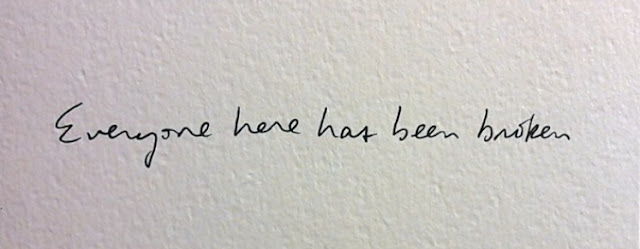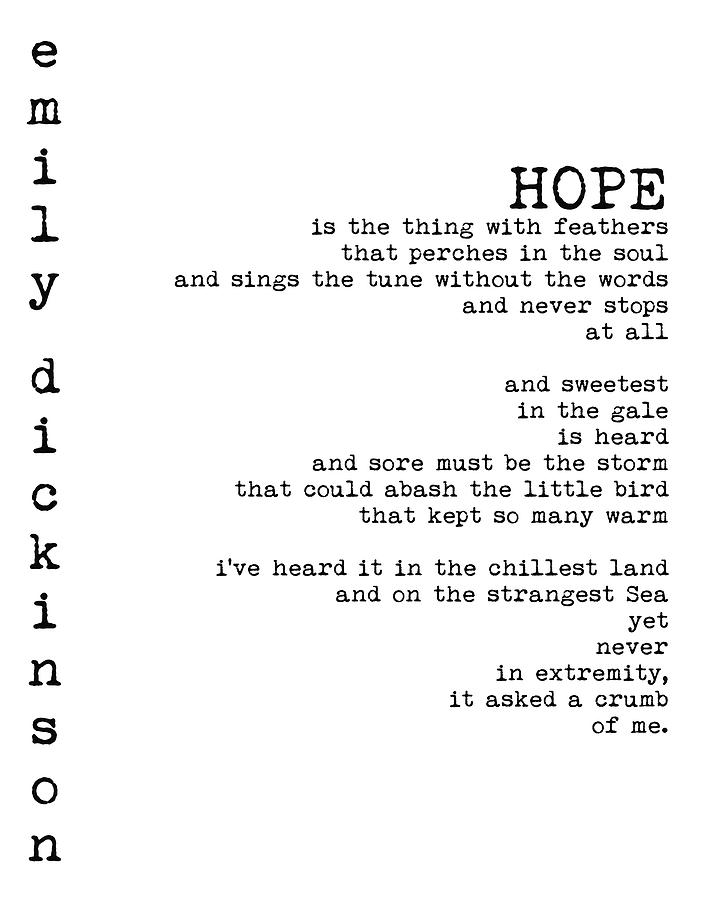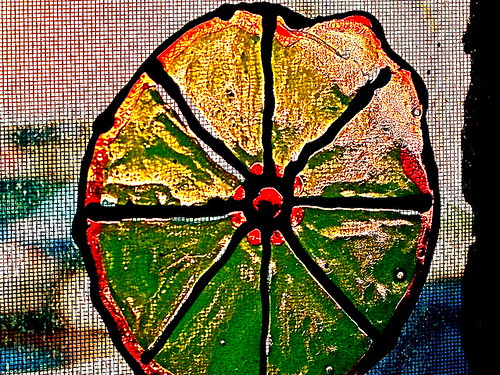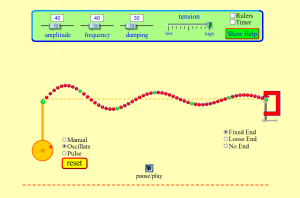Hope without fear doesn't exist; that's called naivety.
Hope is the alpha. All resiliency, all fear, all action is derived from hope, "the thing with feathers... that sings the tune without the words" as so beautifully described by
Emily Dickinson in her poem entitled "Hope"...
“Hope” is the thing with feathers -
That perches in the soul -
And sings the tune without the words -
And never stops - at all -
And sweetest - in the Gale - is heard -
And sore must be the storm -
That could abash the little Bird
That kept so many warm -
I’ve heard it in the chillest land -
And on the strangest Sea -
Yet - never - in Extremity,
It asked a crumb - of me.
Emily Dickinson
My friend Daniel Durrant (
@ddrrnt ) recently wrote about hope in a
nemetics context. Nemetics is a term that has evolved to explain phenomena surrounding the exchanges that occur in our emotional, cognitive and physical spaces
.He aligned hope with the nemetic element of engaging. I think he is saying that
hope needs to be actionable to be called hope.
Frankl called it purpose in
logotherapy. I call it action, but nonetheless hope without action is wishful thinking. How can teachers nurture this hope in students? If we allow Daniel to take us on a nemetics mini-tour of the process perhaps it will resonate more clearly.
He quite cleverly aligned faith, hope, charity and patience as nemetic elements that align with the Notice- Engage- Mull- Exchange pattern. The full spectrum of the pattern looks like this:
FAITH is why we NOTICE- this aligns the seen and unseen. It is the first impulse that triggers everything.
HOPE is why we ENGAGE- this aligns the decision to engage with the value and quality of hope. somewhat a paradox, but oh well.
CHARITY is why we MULL- this aligns the notion of time spent mulling with more purposeful and selfless reasons. also triggers gratitude, which might sync up with patience.
PATIENCE is why we EXCHANGE- this aligns the awareness that what was believed and so engaged by giving time may not be reciprocated when and how we expect. Yet we do so because patience releases attachments and fills our hearts with gratitude for what is present.
"Neme" is an acronym for the fractal learning process of
Complex Adaptive Systems. Notice (or not) Engage (or not) Mull (or not) Exchange (or not)... NemeX connotes the actual exchange in progress
. Interaction involving these elements
surfaces through waves of resonance, and thrives through waves of dissonance, an unsettling of sorts; some may even describe these waves as
fear.
Our decision to become part of a neme means our reality will change, whether slightly or dramatically, it all depends on the nature of the exchange and the degree to which we engage within it.
In
Andrew Razeghi's book, "Hope," he describes the process of engaging a little or a lot as either
jumping off the curb, or
jumping off the cliff. A small leap of faith, or a large leap of faith is still a leap of faith. Teachers take a leap of faith every day, and depending on their relative experiences and perspective toward life and teaching, either can feel like a very big deal to any given individual... it's all relative.
So again, how can teachers nurture this purposeful hope in their students? Starting with
FAITH is why we NOTICE... teachers need to take
acclaimed National Geographic photographer Dewitt Jones' advice and "
see what they believe."
"Our perspective is what holds the key to whether the solution is ordinary or extraordinary. If we want truly extraordinary vision then we have to continually expand our horizons, take risks. If we don’t push our edge we’ll never expand our view. It’s not trespassing to go beyond your own boundaries." Dewitt Jones, National Geographic Photographer
So whether we're jumping off a curb, or a cliff, we need to have faith that something good will come from the effort. We need to look for the good in our students and expose it. This is the
HOPE is why we ENGAGE... part in celebration of our student's strengths and
dreams. Every student has a story, and like Dewitt Jones does when he finds the story behind his photographs, we need to find a story behind our students; the one already written that will give us a glimpse into their hope and their purpose.
As our student's stories evolve, so do our approaches to supporting them. This is the
CHARITY is why we MULL part. Using the word
mull interchangeably with
reflection makes it a bit easier to understand this part of the process. Reflecting purposefully, selflessly and perhaps collaboratively with other supportive caregivers is how we display our willingness to walk the learning path with our students; not to pull them along, or push them on, but simply walk the path with them, learn with them and from them. We are fortunate to have this opportunity. It is a privileged opportunity teachers have to spend every day with curious, excited and eager-to-learn kids... an environment that should make it easy for all of us to also be curious, excited and eager-to-learn adults. Like anything in balance, however, eagerness on the part of any learner has to be tempered with patience.
Teachers need to be patient by nature. Every child is on his own learning timeline. Homogeneous classrooms full of kids perfectly aligned with the education system's developmental guidelines don't exist. There is no average student anywhere. Each child is unique and skilled in his own way, and the
PATIENCE is why we EXCHANGE part indicates our understanding of this fact. Living in the present; walking multiple learning paths with students every day is the exchange that exemplifies our patience. We know full well that the outcomes we are working on with students may not be met until long after the paths we walk together diverge and our students have moved on to work with someone else. We exchange with our students in the present to the best of our ability so that they can move on and continue to build their learning paths forward... and back to faith we go; faith in our students and the teachers who will continue the good work we have shared with each student.
Full circle.
Does a sense of fear and doubt ever creep into this process? For me, every single day. Hope without fear doesn't exist; that's called naivety. I don't know how things will turn out for each of my students, but I want them all to be successful on their own terms. Students have fears too... for many the fear of failure. Embracing failure as a necessary element of learning is a critical element of success. If failure was absolute nobody would ever learn how to ride a bicycle. In a strange way, fearing failure is the same as fearing success for if we don't keep trying when we come up against a roadblock, in a way we're saying "what if I get over that roadblock... then what?" Balancing hope and fear on behalf of my students is what drives me to support their pursuit of personal and relative success.







 chronicles his experiences as a concentration camp inmate and describes his psychotherapeutic method of finding a reason to live. According to Frankl, the book intends to answer the question "how was everyday life in a concentration camp reflected in the mind of the average prisoner?" He observed that prisoners who found something to do every day appeared less vulnerable to the guards, and subsequently were judged as useful in one way or another; not as expendable. I simply cannot even imagine the horror of that reality, but nonetheless, it was documented by Frankl, (perhaps that was his purpose in attempting to make any sense of the horror,) and it makes sense to me.
chronicles his experiences as a concentration camp inmate and describes his psychotherapeutic method of finding a reason to live. According to Frankl, the book intends to answer the question "how was everyday life in a concentration camp reflected in the mind of the average prisoner?" He observed that prisoners who found something to do every day appeared less vulnerable to the guards, and subsequently were judged as useful in one way or another; not as expendable. I simply cannot even imagine the horror of that reality, but nonetheless, it was documented by Frankl, (perhaps that was his purpose in attempting to make any sense of the horror,) and it makes sense to me.








